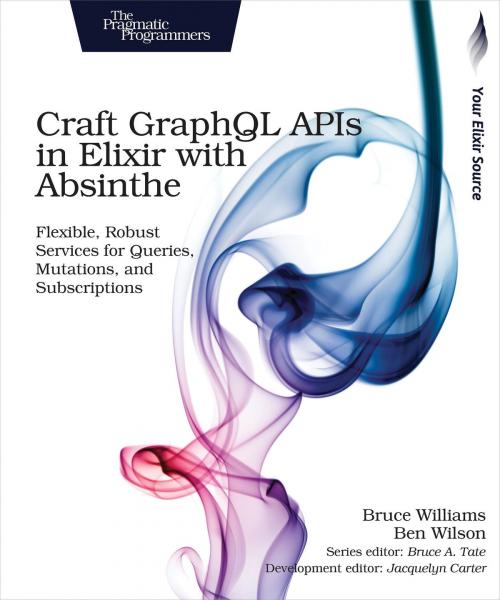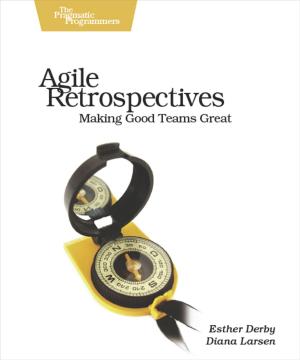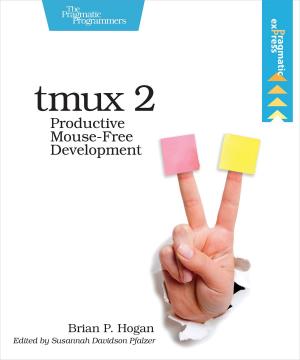Craft GraphQL APIs in Elixir with Absinthe
Flexible, Robust Services for Queries, Mutations, and Subscriptions
Nonfiction, Computers, Advanced Computing, Programming, Data Modeling & Design, Programming Languages, General Computing| Author: | Bruce Williams, Ben Wilson | ISBN: | 9781680505931 |
| Publisher: | Pragmatic Bookshelf | Publication: | March 27, 2018 |
| Imprint: | Pragmatic Bookshelf | Language: | English |
| Author: | Bruce Williams, Ben Wilson |
| ISBN: | 9781680505931 |
| Publisher: | Pragmatic Bookshelf |
| Publication: | March 27, 2018 |
| Imprint: | Pragmatic Bookshelf |
| Language: | English |
Your domain is rich and interconnected, and your API should be too. Upgrade your web API to GraphQL, leveraging its flexible queries to empower your users, and its declarative structure to simplify your code. Absinthe is the GraphQL toolkit for Elixir, a functional programming language designed to enable massive concurrency atop robust application architectures. Written by the creators of Absinthe, this book will help you take full advantage of these two groundbreaking technologies. Build your own flexible, high-performance APIs using step-by-step guidance and expert advice you won't find anywhere else.
GraphQL is a new way of structuring and building web services, and the result is transformational. Find out how to offer a more tailored, cohesive experience to your users, easily aggregate data from different data sources, and improve your back end's maintainability with Absinthe's declarative approach to defining how your API works.
Build a GraphQL-based API from scratch using Absinthe, starting from core principles. Learn the type system and how to expand your schema to suit your application's needs. Discover a growing ecosystem of tools and utilities to understand, debug, and document your API. Take it to production, but do it safely with solid best practices in mind. Find out how complexity analysis and persisted queries can let you support your users flexibly, but responsibly too. Along the way, discover how Elixir makes all the difference for a high performance, fault-tolerant API. Use asynchronous and batching execution, or write your own custom add-ons to extend Absinthe. Go live with subscriptions, delivering data over websockets on top of Elixir (and Erlang/OTP's) famous solid performance and real-time capabilities.
Transform your applications with the powerful combination of Elixir and GraphQL, using Absinthe.
What You Need:
To follow along with the book, you should have Erlang/OTP 19+ and Elixir 1.4+ installed. The book will guide you through setting up a new Phoenix application using Absinthe.
Your domain is rich and interconnected, and your API should be too. Upgrade your web API to GraphQL, leveraging its flexible queries to empower your users, and its declarative structure to simplify your code. Absinthe is the GraphQL toolkit for Elixir, a functional programming language designed to enable massive concurrency atop robust application architectures. Written by the creators of Absinthe, this book will help you take full advantage of these two groundbreaking technologies. Build your own flexible, high-performance APIs using step-by-step guidance and expert advice you won't find anywhere else.
GraphQL is a new way of structuring and building web services, and the result is transformational. Find out how to offer a more tailored, cohesive experience to your users, easily aggregate data from different data sources, and improve your back end's maintainability with Absinthe's declarative approach to defining how your API works.
Build a GraphQL-based API from scratch using Absinthe, starting from core principles. Learn the type system and how to expand your schema to suit your application's needs. Discover a growing ecosystem of tools and utilities to understand, debug, and document your API. Take it to production, but do it safely with solid best practices in mind. Find out how complexity analysis and persisted queries can let you support your users flexibly, but responsibly too. Along the way, discover how Elixir makes all the difference for a high performance, fault-tolerant API. Use asynchronous and batching execution, or write your own custom add-ons to extend Absinthe. Go live with subscriptions, delivering data over websockets on top of Elixir (and Erlang/OTP's) famous solid performance and real-time capabilities.
Transform your applications with the powerful combination of Elixir and GraphQL, using Absinthe.
What You Need:
To follow along with the book, you should have Erlang/OTP 19+ and Elixir 1.4+ installed. The book will guide you through setting up a new Phoenix application using Absinthe.















